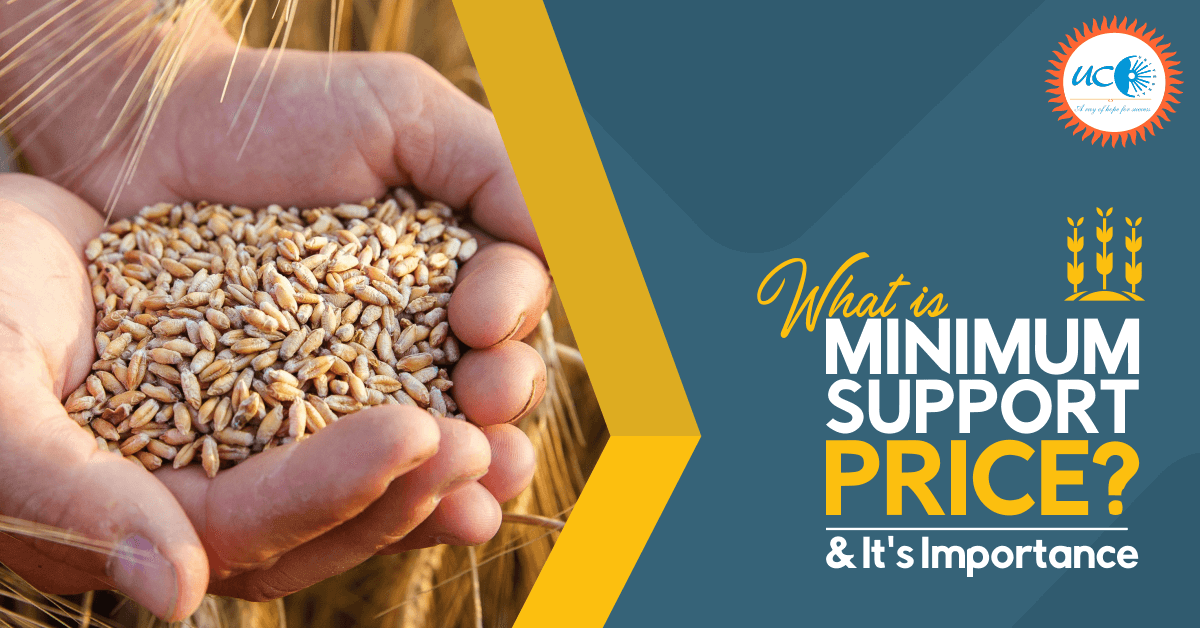What is minimum support price (MSP) ? & it’s importance
Minimum Support Price (MSP) & it’s Important for GS Paper- 3 & Prelims
- Minimum Support Price (MSP) is a form of market intervention by the Government of India to insure agricultural producers against any sharp fall in farm prices
- Announced at the beginning of the sowing season
- Based on the recommendations of the Commission for Agricultural Costs and Prices (CACP)
Why?
- To protect the producer – farmers – against excessive fall in price during bumper production years
- The minimum support prices are a guarantee price for their produce from the Government
- To support the farmers from distress sales and to procure food grains for public distribution.
- In case the market price for the commodity falls below the announced minimum price due to bumper production and glut in the market, government agencies purchase the entire quantity offered by the farmers at the announced minimum price.
Determination of MSP is based on the following factors:-
- Cost of production
- Changes in input prices
- Input-output price parity
- Trends in market prices
- Demand and supply
- Inter-crop price parity
- Effect on industrial cost structure
- Effect on the cost of living
- Effect on the general price level
- International price situation
- Parity between prices paid and prices received by the farmers.
- Effect on issue prices and implications for subsidy
Crops covered under MSP
Government announces minimum support prices (MSPs) for 22 mandated crops and fair and remunerative price (FRP) for sugarcane
- Cereals (7) – paddy, wheat, barley, jowar, bajra, maize and ragi
- Pulses (5) – gram, arhar/tur, moong, urad and lentil
- Oilseeds (8) – groundnut, rapeseed/mustard, toria, soybean, sunflower seed, sesamum, safflower seed and niger seed
- Raw cotton
- Raw jute
- Copra
- De-husked coconut
- Sugarcane (Fair and remunerative price)
- Virginia flu cured (VFC) tobacco
- The Food Corporation of India (FCI), the nodal central agency of the Government of India, along with other State Agencies undertakes procurement of crops
National Commission on Farmers: Swaminathan Committee
- In 2004, the Union government formed the National Commission on Farmers (NCF) with MS Swaminathan as its chairman.
Aim:
- To come up with a sustainable farming system, make farm commodities cost-competitive and more profitable.
- It, in 2006, recommended that MSPs must be at least 50% more than the cost of production.
It talked about the cost of farming at three levels:
- A2: All the types of cash expenditure to generate the crop like seeds, manure, chemicals, labour costs, fuel costs and irrigation costs.
- A2+FL: It includes A2 plus an imputed value of unpaid family labour.
- C2: Under C2, the estimated land rent and the cost of interest on the money taken for farming are added to A2 and FL.






